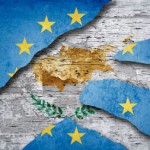A Dysfunctional EU: What Future?

 Many believe that the European Union is, and can only ever be, a force for good and that the 500-plus million citizens of its 28 Member States should be eternally grateful for all the myriad of benefits that they argue the EU bestows upon them.
Many believe that the European Union is, and can only ever be, a force for good and that the 500-plus million citizens of its 28 Member States should be eternally grateful for all the myriad of benefits that they argue the EU bestows upon them.
As a common trading bloc, the EU provides big trading advantages to its member states and citizens. That trading advantage was the prime focus of the original EEC (European Economic Community) from which the EU emerged and with a much enlarged agenda in the areas of common legislation, currency union and eventual political union.
However, many now fear that the grand EU ‘European experiment’ has gone disastrously wrong. There are growing calls across Europe from both mainstream and fringe politicians, as well as disaffected voters, for either radical reform of the EU or for their country to quit the EU.
In the UK, for example, where national sovereignty has always been jealously guarded by its citizens, the disaffection with the EU has been growing steadily to the point where the government will soon hold a national referendum to decide whether or not the UK remains part of the EU. The vote will be a very close call but the ‘voter intention’ poll trends have been moving steadily towards an overall ‘Brexit’ vote.
So, where has it all gone wrong for the EU? I offer my personal opinion as a long-standing EU supporter who has become a Eurosceptic.
Institutional Corruption and Incompetence
Many argue that the EU as an institution has become corrupted. On one plane, the EU seems to exhibit the ‘corrupted spirit’ of an apparently uncaring leviathan run by hordes of faceless, nameless, self-serving bureacrats in Brussels and Strasboug. These officials, on the so-called EU ‘gravy train’, are perceived, correctly or not, as pursuing as their first and perhaps only priority their own careers and financial enlargement, while being paid vast salaries and benefits (often tax-free) out of tax payers’ money supplied via Member States.
Nevertheless, despite receiving such largesse, EU officialdom is often slow, evasive, equivocal and sometimes downright incompetent. For example, I received from two different senior officials in the same EU Directorate flatly contradictory written statements on a particular issue. I have also been privy to other correspondence that shows EU officials as being masters of evasion, decision avoidance and buck passing, especially back to Member States.
On top of the corruption of the spirit, there is also the curse of actual fraud and corruption.Vast sums of EU money are unaccounted for.
Stretching back to the 1990s, there has been a series of scandals such as the Eurostat scandal uncovered in 2003, in which for more than a decade Planistat officials had been diverting millions of euros for their personal gain. The Eurostat internal audit service eventually discovered it but the OLAF (European Anti-Fraud Office) report on it was deliberately delayed for years, apparently at the behest of three EU Commissioners.
To the 500 mln citizens of the EU, this looks like a self-serving cover-up that undermines the moral authority of the EU.
Unaccountable Overbearing Inertia
Many accuse the EU of pretending to enshrine democratic values and promote fairness and human rights for all its citizens, while in reality also imposing an authoritarian paternalism based on a predominantly socialist ideology summed up as “the EU socialist nanny knows what’s best for you and we will force you have what we think you need regardless of what you think.”
This neo-Marxist nannyism will be familiar to citizens of Member States which have ever had a communist party or similar in either partial or complete control of their government policy, e.g. Cyprus.
The nannyist ideology has been driving EU legislation, especially in areas of law, social welfare, consumer protection and so on. Few would dispute that there have been some benefits from various EU regulations and directives.
However, the deserved plaudits in some areas have been overshadowed by bureaucratic idiocy in others; for example, the inane micro-management dictats from Brussels on such parochial matters as banning bent bananas, proscribing short, bent cucumbers and forbidding British pubs to sell beer in pint measures. Forcing the UK to pay benefits and provide housing to EU migrants as soon as they enter the UK has erupted into a national scandal that undoubtedly will boost the ‘Quit’ vote in the Brexit referendum.
All that citizens perceive and remember from all this are yet further examples of unwarranted and unacceptable interference in their lives by overbearing EU busybody bureacrats in Brussels.
If the overweaning micro-management intrusions were not enough, at the more macro and strategic levels, the EU appears to be struck down by a kind of collective catatonia, a policy and executive constipation. Nothing exemplifies this better than the EU’s disarray when faced with crises, such as financial bailouts for weaker Member States verging on bankruptcy and the mega influx of migrants from outside the EU.
Getting any kind of coherence and agreement on what to do from such a diverse set of 28 Member States has as much chance of success as trying to herd cats all in one direction and getting them all to miaow in unison.
The migrant crisis and the absolute need to secure the EU’s borders, from both an endless mass of would-be migrants and terrorist insurgents taking advantage of the crisis, is putting a de facto end to the Schengen project and the EU’s internal borderless travel fantasy. Out of sovereign self-interest, Member States are re-imposing border controls against the Schengen accord.
The Curse of EU Subsidiarity
One of the biggest EU absurdities is the principle of subsidiarity, whereby EU legislation is issued in the form of Directives which the Member States are then required to implement through their own legislation and enforce locally. The Directives are arrived at through a fairly rigorous consultation and drafting system seeking to ensure final acceptance by every Member State. The implementation and enforcement of such legislation is devolved entirely to each Member State and one could be forgiven for thinking that this surely represents a particularly benign and enlightened approach that recognises the sovereign integrity of each Member State and shows a high degree of trust.
How mature, you may think. No overbearing EU nannyism there! Ah but… there is a huge ‘but’.
Subsidiarity relies entirely on each Member State implementing a particular Directive and enforcing it, i.e. acting responsibly.
Regrettably, history shows that whereas some Member States do act responsibly in this regard, others do not. Some have a very lax and laissez-faire attitude towards EU Directive enforcement, the various major hazard Directives being an example.
For example, the Polyviou Report into the Mari-Vassilikos disaster of July 2011 was critical of the EAC’s compliance with the Seveso II Directive and the enforcing authority’s supervision. The glaring weakness of subsidiarity lies in the fact that the EU centrally has no over-arching monitoring, auditing and supervisory function over what a Member State does or does not do to implement a Directive and has no mandate to establish one.
Each Member State is left ‘on their honour’ to implement a Directive correctly. Such trust is not always warranted.
Conclusion
The economic argument to stay in the EU remains compelling but recent events, such as the bailouts for Greece and Cyprus and the migration crisis, are casting doubts on whether and for how long the economic strength of the EU can be assured.
The inability and unwillingness of the EU to institute radical reform, and its steadfast refusal to allow the UK to eradicate the wholesale abuse of its state welfare system by economic migrants from poorer EU countries, have turned increasing numbers of UK citizens into implacable enemies of the EU. Arrogant EU leaders telling Britain that it must accept the EU’s bad terms are inflaming UK voters.
A ‘Brexit’ may cause the UK short-term economic damage but bring long-term salvation from EU enslavement, corruption, ‘nannyist’ excesses and absurdities. The referendum awaits.
http://www.financialmirror.com/blog-details
Find more: Contributing Authors





























